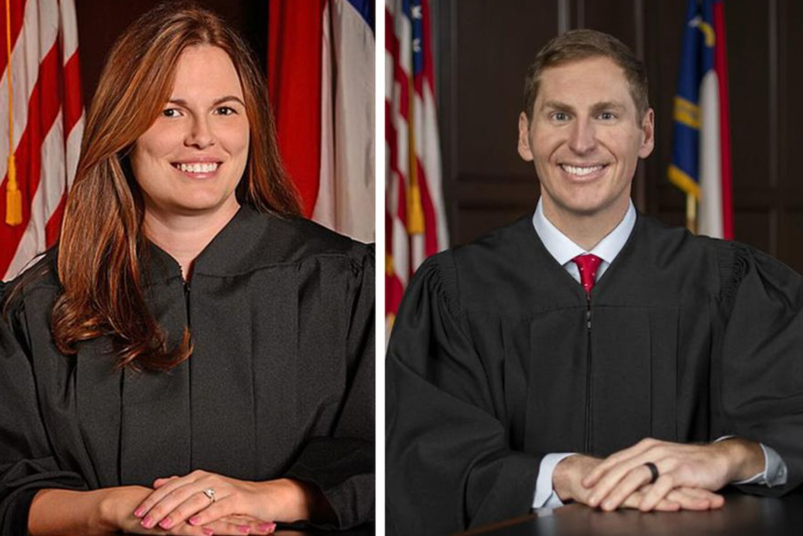WASHINGTON (AP) — Opponents of legislation stripping senior military commanders of their authority to prosecute rapes and other serious offenses expressed confidence on Thursday that the far-reaching measure would fall short in a highly anticipated Senate vote.
The bill, which is expected to come up for a vote Thursday afternoon, is firmly opposed by the Pentagon’s leadership, which argues officers should have more responsibility, not less, for the conduct of the troops they lead.
A solid majority of the Senate also opposes the measure, sponsored by Sen. Kirsten Gillibrand, D-N.Y., arguing that commanders must have the ability to discipline the troops they lead in war and peacetime.
“You can’t mess with the chain of command,” Sen. Jim Inhofe of Oklahoma, the senior Republican on the Senate Armed Services Committee, said on the Senate floor.
Another opponent, Sen. Claire McCaskill, D-Mo., said she was confident the Senate would reject the measure.
“I feel comfortable it won’t be a razor-thin margin,” McCaskill told reporters.
The legislation illustrates the deep frustration among Republicans and Democrats over the military’s failure to stem the epidemic of sexual assaults in the ranks. Gillibrand needed 60 votes to prevent a filibuster that would block the bill’s passage.
Gillibrand’s spokesman, Glen Caplin, said Wednesday the senator is “optimistic there will be enough senators to break the filibuster and provide our brave men and women the fair shot at justice they deserve.”
The Pentagon came under pressure last month to disclose more information about how sexual assault cases are adjudicated following an Associated Press investigation that found a pattern of inconsistent judgments and light penalties for sexual assaults at U.S. bases in Japan.
Gillibrand, who chairs the Senate Armed Services personnel subcommittee, called on Defense Secretary Chuck Hagel in a Feb. 10 letter to turn over case information from four major U.S. bases: Fort Hood in Texas, Naval Station Norfolk in Virginia, Camp Pendleton Marine Corps base in California and Wright-Patterson Air Force Base in Ohio. Such records would shed more light on how military commanders make decisions about courts-martial and punishments in sexual assault cases and whether the inconsistent judgments seen in Japan are more widespread.
The AP’s investigation, which was based on hundreds of internal military documents it first began requesting in 2009, found that what appeared to be strong cases were often reduced to lesser charges. Suspects were unlikely to serve time even when military authorities agreed a crime had been committed. In two rape cases, commanders overruled recommendations to court-martial the accused and dropped the charges instead.
The military has struggled increasingly in recent years with the sexual assault issue.
On Thursday, an Army general accused of sexual assault pleaded guilty to three lesser charges, hoping his admission will strengthen his case by limiting some of the salacious evidence against him.
Brig. Gen. Jeffrey A. Sinclair is accused of forcing a female captain to twice perform oral sex and threatening to kill her family if she told anyone about their three-year affair.
Sinclair, 51, still faces five charges, including sexual assault, in his trial before a jury of five generals. The former deputy commander of the 82nd Airborne could be sentenced to life in prison if convicted on the most serious charges.
After much debate, Congress late last year passed numerous changes to the military’s legal system. But the reforms didn’t go far enough for many lawmakers.
Under Gillibrand’s proposal, the decision to take serious crimes to courts-martial would be taken away from commanders and given to seasoned military trial lawyers who have prosecutorial experience and would operate out of a newly established office independent of the chain of command.
The legislation, she said in a recent AP interview, would spark the cultural shift needed to create a climate in which victims have the confidence to step forward and report sex crimes without the fear of retaliation.
With commanders making the call, there’s the chance a personal bias may influence the decision, proponents of Gillibrand’s bill have argued.
“If we measured any other mission that our military has set zero tolerance for, compared to how they’ve done on sexual assault, there would be an outcry louder than we can imagine,” Gillibrand said. “But in this case, they have failed over and over and over again.”
The Defense Department is staunchly against Gillibrand’s plan, as are key members of the Senate Armed Services Committee, including Chairman Carl Levin, D-Mich., and Lindsey Graham of South Carolina, the top Republican on the personnel subcommittee.
The dispute hinges on the pivotal role senior military commanders play. Formally known as the Uniform Code of Military Justice, the Defense Department’s system is completely separate from the civilian courts. Within the military’s code, commanders are vested with substantial authority to decide when and how to deal with crimes committed by service members.
Congress must vote on major changes to the code.
That power to punish or pardon has been a principal tenet of military law dating back more than two centuries. It’s rooted in the military’s conviction that commanders must have the ability to discipline the troops they lead in peacetime and war. Undercutting that role, top Defense Department officials have warned, would send a message that there is lack of faith in the officer corps, and that in turn will undermine the efficiency and effectiveness of the armed forces.
___
Follow Richard Lardner on Twitter: https://twitter.com/rplardner
Copyright 2014 The Associated Press. All rights reserved. This material may not be published, broadcast, rewritten or redistributed.









